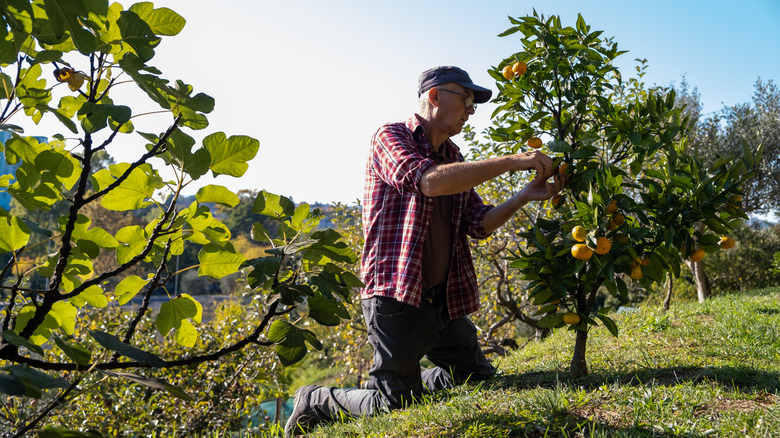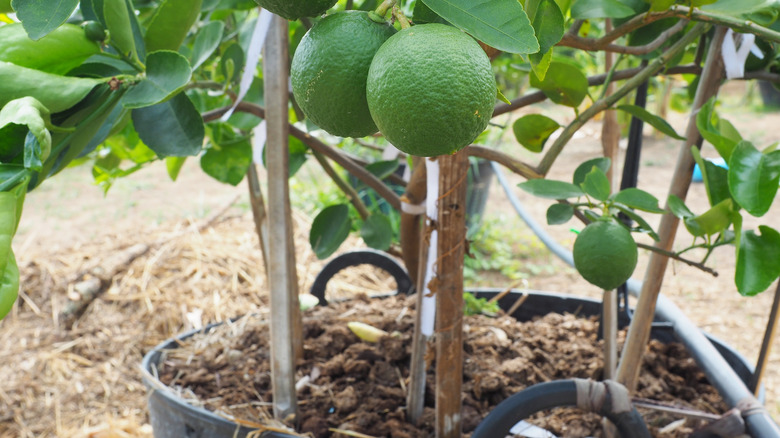Don't Skip This Crucial Gardening Task This Fall Or Your Citrus Trees Will Suffer
Compost is great stuff for the garden. It helps build rich humus, the critical top layers of soil that contain the microorganisms necessary for breaking down organic matter into plant food. Citrus trees are ravenous plants — how else would they produce all that enormous juice-filled fruit in abundance? Regular dosings of fertilizer (a.k.a. plant food) are essential to grow and care for an orange tree, or any other citrus for that matter, especially if you want them to survive and thrive during the difficult winter months. Spreading a layer of compost around the base of your citrus tree is a task you need to check off your fall gardening to-do list.
Citrus trees continue to grow through fall and bear fruit from late fall onwards. A hefty dressing of compost provides the slow-release food needed to create tasty fruit and put down roots before winter — that's why you're growing these trees, after all! Savvy gardeners plant citrus in early fall, especially in the frost-less warmer parts of the U.S. It also goes hand-in-hand with fertilizing, acting as a sort of protective "lid" for the fertilizer. (Bonus tip: Keep adding fertilizer from February through October for the first four years of your tree's life for the tastiest oranges, lemons, limes, and more.) Composting also helps keep the soil damp around a plant's roots or, conversely, improves drainage in pot-planted citrus trees.
Buying and adding compost
The first thing to do is clear away any grass from around the trunk of your tree. It competes with the roots of your tree for nutrients. If you've just planted a sapling, you can skip this step. Spread the compost around the tree in a ring, avoiding the trunk by 2 inches. Width-wise, the limits of your compost ring should extend to the end of the longest branches of your tree. Depending on the size of your citrus, aim to add two to four shovelfuls of compost. Need a more precise measurement? You've laid enough compost when the ring is 4 or more inches deep. Once the compost is in place, water until saturated — even the layers of compost closest to the soil should be damp to the touch. The compost will shrink as it decomposes over the following days and weeks. Top up the ring with fresh compost as needed.
If you know how to make your own DIY compost, you'll have ready access to this indispensable soil-amending substance. If you buy compost, most citrus trees prefer ericaceous (or slightly acidic) compost with a pH between 6 and 6.5. Walmart sells a 10-pound bag of premium compost by R&M Organics for $21.97. Himmel's in Pasadena has bulk mushroom compost for between $20 and $200, depending on your order volume. Alternatively, use the handy map offered by the US Composting Council to find an STA (Seal of Testing Assurance) certified compost supplier near you.

